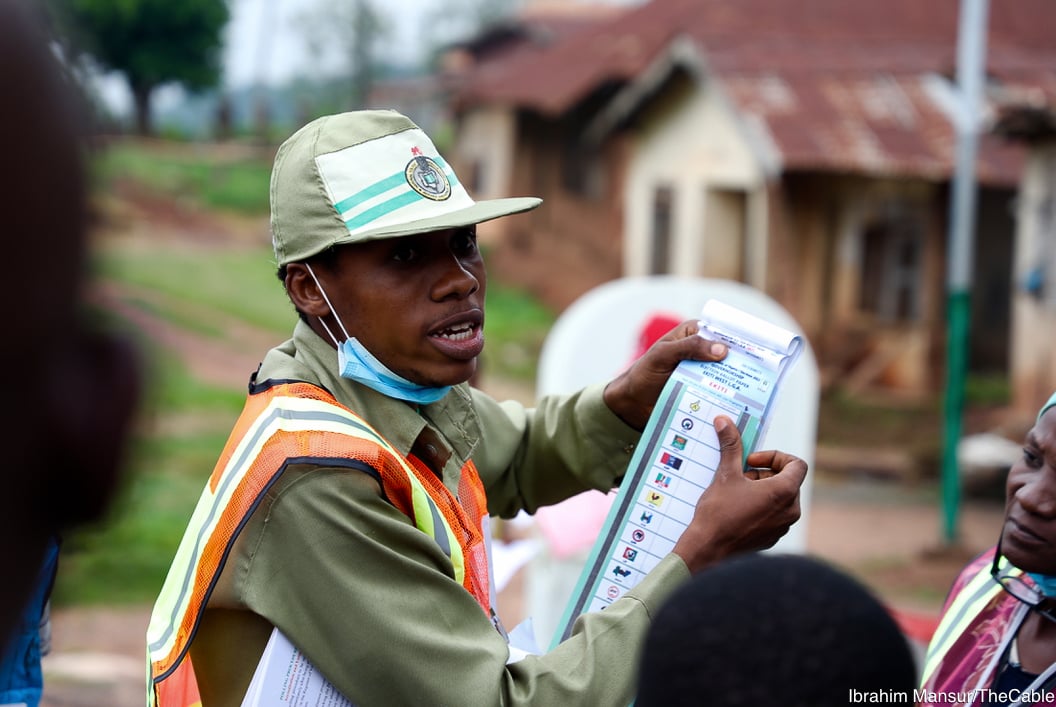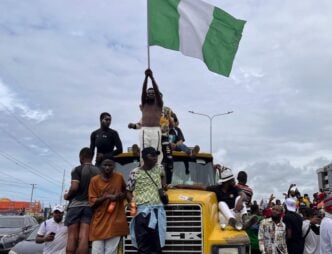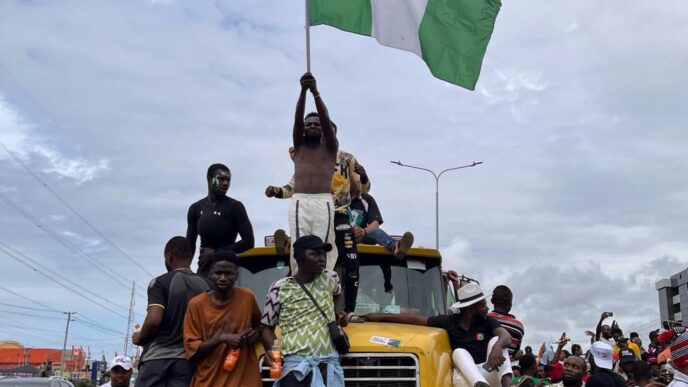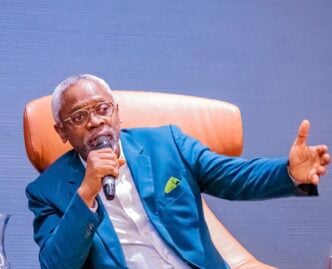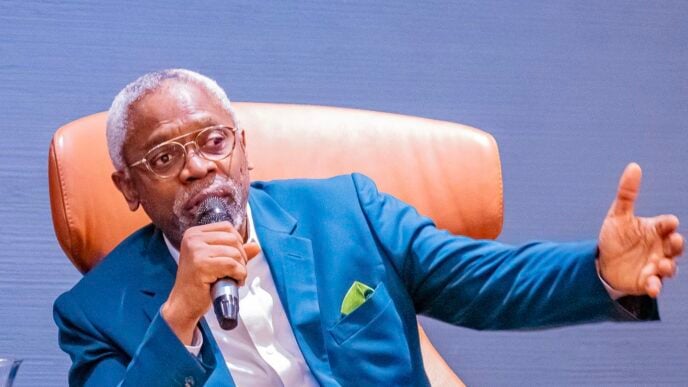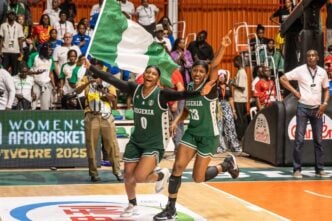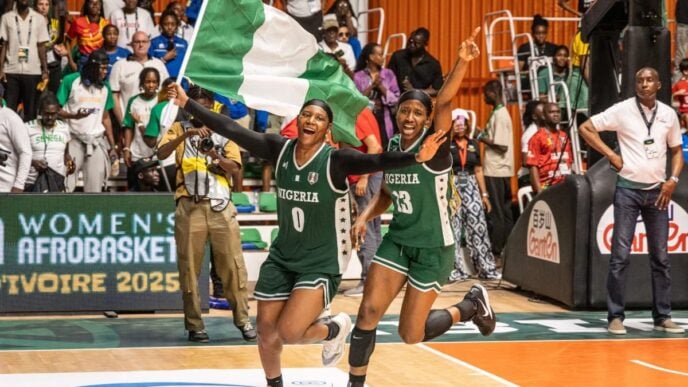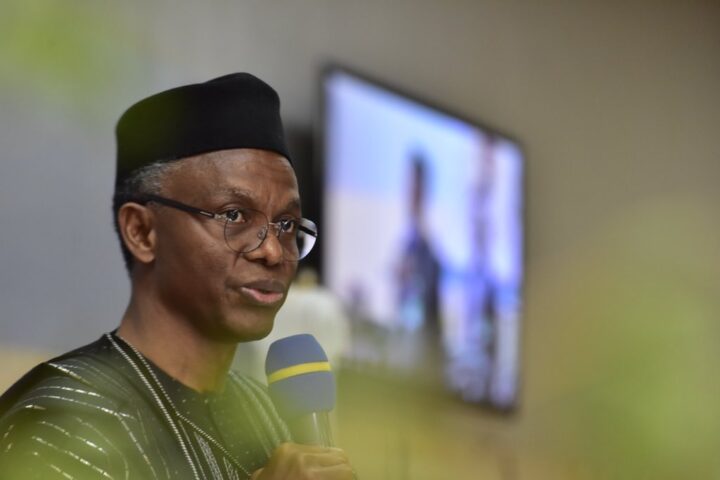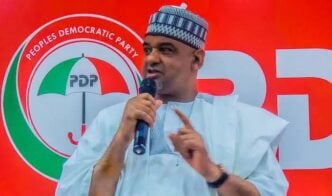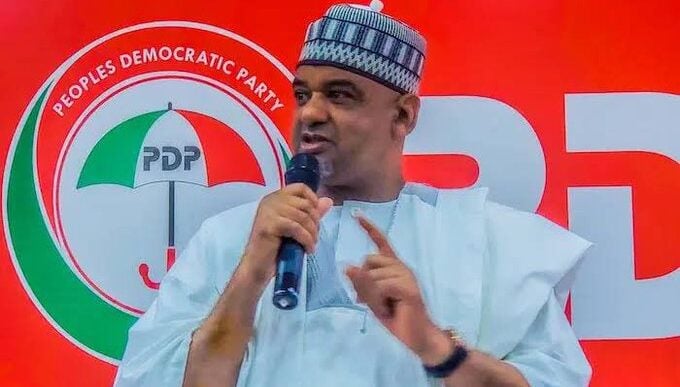The pace and energy with which President Bola Tinubu’s foot soldiers sped to Kaduna last week to defend his stewardship at an engagement organised by the Sir Ahmadu Bello Memorial Foundation (SABMF) should confirm an obvious thing: that the president knows the importance of getting northern support again in his bid for a second term in office. Contrary to the manner some of his supporters have dismissed the weight of the opposition, Tinubu seems to understand that without key northern votes, he would not have been elected president in 2023, not with a core northerner like Alhaji Atiku Abubakar in the race. And it is evident he has since lost some mileage in that region.
Going by the history of our presidential elections, it is safer if two of the biggest three power blocs — the Muslim north, the south-east and the south-west — are substantially in your corner. They are called the “tripod” for a reason. Other power blocs — such as the middle belt (Christian north) and southern minorities — are valuable contributors to vote tallies but they hardly decide the outcome, except in 1979 when southern minorities gave Alhaji Shehu Shagari the edge as the tripod fielded strong candidates: Dr Nnamdi Azikiwe (south-east) and Chief Obafemi Awolowo (south-west). Alhaji Waziri Ibrahim and Mallam Aminu Kano, both core northerners, gave Shagari a hard time up north.
In 2023, Dr Rabiu Musa Kwankwaso hurt Atiku in the north-west. This helped Tinubu to win overall in the north, adding it to his south-west haul. He was perhaps the only southerner who could have defeated a homeboy of Atiku’s status up north given his political network, but the northern streets are no longer smiling. One big issue is the economic reform which has hit low-income earners, most of whom are northerners. Another is the disquiet over the pattern of Tinubu’s appointments, aka “Yorubanisation agenda”. Kwankwaso’s recent claim that Tinubu has neglected the north was a heavy political statement that shook the president’s camp. No doubt, Tinubu is in for a very tight fight.
If Tinubu were contending for northern votes with only a fellow southerner, his calculations would be different. But he will be up, for the second time, against an old warhorse in Atiku, who must fancy his chances this time around. Atiku has been seeking to be president since 1993 — the last 32 years, that is — and he must see 2027 as his best chance ever because of the sentiments against Tinubu. Unlike in 2023 when Tinubu enjoyed the benefit of the doubt from many northerners who chose him above Atiku, the sentiments appear to have been markedly diluted. Tinubu will have to be at his very best to be able to warm, or worm, his way back to the hearts of northern power brokers and voters.
Advertisement
Tinubu will surely pick the presidential ticket of the All Progressives Congress (APC) — I am not expecting any drama there. It also looks certain that Atiku will pick the ticket of the African Democratic Congress (ADC), where opposition figures are coalescing. Mr Peter Obi, who put up an incredible performance in 2023, is still weighing his options. Should he leave the Labour Party for the ADC? Does he stand a chance of getting the ADC ticket? The elephant in the room, though, is: should he accept to be running mate to Atiku again? He was Atiku’s running mate in 2019. He is now a presidential candidate in his own right and his die-hard supporters might see that as a demotion.
Even if Obi wants to stoop to conquer by accepting to be running mate (and hoping to take his turn in 2031), not many of his supporters will agree. It is, thus, being suggested that Atiku should play the statesman by working for Obi to be president. This, to me, is Obi’s best route to power. The truth, however, is that Atiku wants to be president and this is probably his last throw of the dice. He did not gather a coalition together for the sake of supporting someone else. One scenario might be that Obi would be encouraged to try his luck by contesting in the party’s primary against other aspirants. The prospects of Obi defeating Atiku or Rt Hon Rotimi Amaechi in an ADC primary are not that bright.
Interestingly, Obi has such a massive street appeal in the south-east as well as among large sections of southern youths and northern Christians that all he needs is one more leg of the tripod to buy into the project and he would be home and dry. We can generally assume that the south-west would back Tinubu, so Obi is left with the option of winning over the Muslim north. In 2023, he won the majority votes among the southern and northern minorities but that was not enough to take him to Aso Rock Villa. President Buhari had only one leg of the tripod on his side in three elections from 2003 to 2011 but lost until he finally got the south-west leg in 2015 and triumphed. It is what it is.
Advertisement
Atiku will be strategising with and without Obi. With Obi as running mate, Atiku will reasonably project to get the majority votes of two legs of the tripod: the north and the south-east. That would be his first choice, logically. But he would hope that even if Obi would not come aboard, he will still be another party’s candidate to dilute possible southern solidarity vote for Tinubu. If Obi does not run and there is no other strong southern candidate, some southerners may cast sympathy votes for Tinubu on the ground that the south should do eight years in power as Buhari did. In any case, Obi has said clearly that he will run, so the possibility of being a running mate is currently next to zero.
Tinubu too would be hoping that Obi runs so as to split the opposition votes — as in 2023. I do not expect the majority of Igbo voters to opt for Tinubu even if Obi does not run. There is no love lost between Igbo and Yoruba in politics. And since, mathematically speaking, negative times negative equals positive (“the enemy of my enemy is my friend”), I expect Igbo voters to pick Atiku above Tinubu any day. In my reading of the dynamics, Igbo voters prefer Obi as first choice and Atiku as back-up. I know people who support Obi during the day and Atiku at night, and vice-versa. In the heat of the 2023 petition over the Chicago affair, many well-known Obi fans openly rooted for Atiku.
If Obi and Atiku run, what then would be Tinubu’s strategy? I guess it would be to win as many votes as possible in all the states, coming first or second everywhere. This is where the defections to the APC make sense. In 2023, Tinubu came first in 12 states and second in 18 (including the FCT). That is 30 out of 37. Securing high figures in dense voting populations really matters. Indeed, Tinubu won only two states in the heavily populated north-west, with Atiku securing four and Kwankwaso one, yet he got more votes than Atiku in the zone: 2,652,235 to 2,197,824. He got at least 25 percent in 30 states while Atiku did in 21 and Obi in 16. The constitutional threshold is a minimum of 24 states.
Another insight was that Tinubu and APC lost states that many expected them to win — and still came first overall. He lost Lagos and Osun states in his home zone, the south-west. Even with sitting APC governors, Tinubu lost Kaduna, Kebbi and Kano — as well as Katsina, where Buhari came from. But Tinubu’s share of the votes was high. Atiku, meanwhile, has to navigate another obstacle: the possibility of northern governors and other politicians working against him because they too are hoping to have a go at the presidency in 2031. If Atiku wins in 2027, their chances would be snuffed out instantly. They may back Tinubu for a second term rather than forfeit their own future to Atiku.
Advertisement
By the way, I know it is still early days. My prediction of a Tinubu vs Atiku vs Obi rematch might be trashed if former President Goodluck Jonathan enters the race. Many northerners, even in the ADC, are of the opinion that the south should be allowed to exhaust its two terms so that power can return peacefully to the north in 2031. That is why Amaechi has promised to do only one term if ADC gives him the presidential ticket. Obi also promised same. Those who understand the power game will say you cannot stop a sitting president from gunning for a second term, even if he agreed not to. In that sense, the single-term promises made by both Amaechi and Obi might not be enforceable.
And here is the irony: apart from Tinubu, Jonathan is the only southerner who cannot do more than one term but he did not respect the reported gentleman’s agreement not to go for a second term in 2015. This time, he is legally bound: he is not qualified to do more than another four years. The constitution allows an individual to be elected president a maximum of two terms. Jonathan would have been barred under the 2017 amendment, which does not allow anyone who completed the term of a president to seek election more than once thereafter. But an amendment is not retroactive, therefore Jonathan’s time as inheritor of President Umaru Musa Yar’Adua’s tenure will not count.
There are strong rumours that Kwankwaso wants to run or would love to be running mate to Jonathan. This might explain his reluctance to return to the APC, of which he was a co-founder in 2013. The issue is: on what platform will Jonathan run? He is officially a member of the Peoples Democratic Party (PDP), but the party is in disarray. And there are questions regarding Jonathan’s fire for the fight. Moreover, the PDP is firmly in the grip of Chief Nyesom Wike, who is a minister in Tinubu’s cabinet. Connect the dots. You can bet your last kobo that the PDP will not know peace until after the 2027 presidential election. There is a reason Atiku and associates left the party for Wike.
In sum, these are my initial thoughts as calculations and permutations build up ahead of what promises to be one of the most keenly contested elections in our history. Unlike in the past when we had a breathing space before one election and the next, we have neither slept nor rested since February 2023. We started discussing 2027 even before the winner was sworn in. We can complain and grumble all we like, but the truth is that Nigerians are more excited about electioneering than governance — and our politicians were born to politick. I intend to feed this excitement with updates from time to time. As things stand, it is looking like a Tinubu vs Atiku vs Obi rematch. Fingers crossed.
Advertisement
AND FOUR OTHER THINGS…
STREET FIGHT
I have been very amused by the street-renaming rampage embarked upon by council officials in Lagos state in the name of politics. Of all the challenges of rat-infested drains, pothole-filled roads and poor primary healthcare centres, their priority is renaming streets. While Mr Babatunde Fashola, former governor of the state, has advised the officials to respect the history of Lagos, my other worry is the stress residents now have to go through to update their addresses: BVN, NIN, driving licences, passports, letterheads, business cards, banks, etc. Google maps will be affected as well. This is what happens in a society where public office is held by characters who have no capacity to think. Jokers.
Advertisement
SKIRTING AROUND
Justice Hauwa Yilwa of the federal high court has declared as unconstitutional the refusal of the National Youth Service Corps (NYSC) to allow female corps members wear skirts. Some women don’t wear trousers because of religious beliefs, and I must say I am surprised that the NYSC was still compelling corps members to wear them. The ban on hijab has been relaxed by many government bodies and I was happy when the Nigerian Law School was forced to comply in 2018. My opinion has always been that in a multi-cultural society, people must be allowed to express their customs and beliefs as long as they do not harm anyone. Skirts and hijab harm no one, in my opinion. Simple.
Advertisement
FLYING FALCONS
Belated congratulations to the Super Falcons of Nigeria for their victory in the Women’s Africa Cup of Nations. When Morocco led 2-0 at half time, something told me it was not over. The Falcons had demonstrated graft and grit from the beginning of the tournament and it was nice seeing them complete “Mission X” with a comeback win to claim their 10th African title out of a possible 13. My compliments are, however, qualified: having watched the UEFA Women’s Euros simultaneously, I must say we have some way to go if we are to compete globally. And this should be our ultimate ambition, having convincingly conquered Africa. We must now step up our game. Challenge.
Advertisement
NO COMMENT
The court of appeal in Owerri, Imo state, has declared that the Federal Road Safety Corps (FRSC) cannot seize a driver’s licence or vehicle without a valid court order. The suit was instituted by Emmanuel Ugochukwu, a medical doctor, who said he was accosted by FRSC officials in Umuahia, Abia state, in 2020. They demanded a bribe, he alleged, and he declined. They promptly accused him of traffic offences and seized his licence. “From a casual ‘find me something’, I had suddenly become a traffic offender,” he said. May I now suggest that the police should also sue the FRSC for copyright infringement. “Find me something” should be the intellectual property of the police. Hahahaha…

